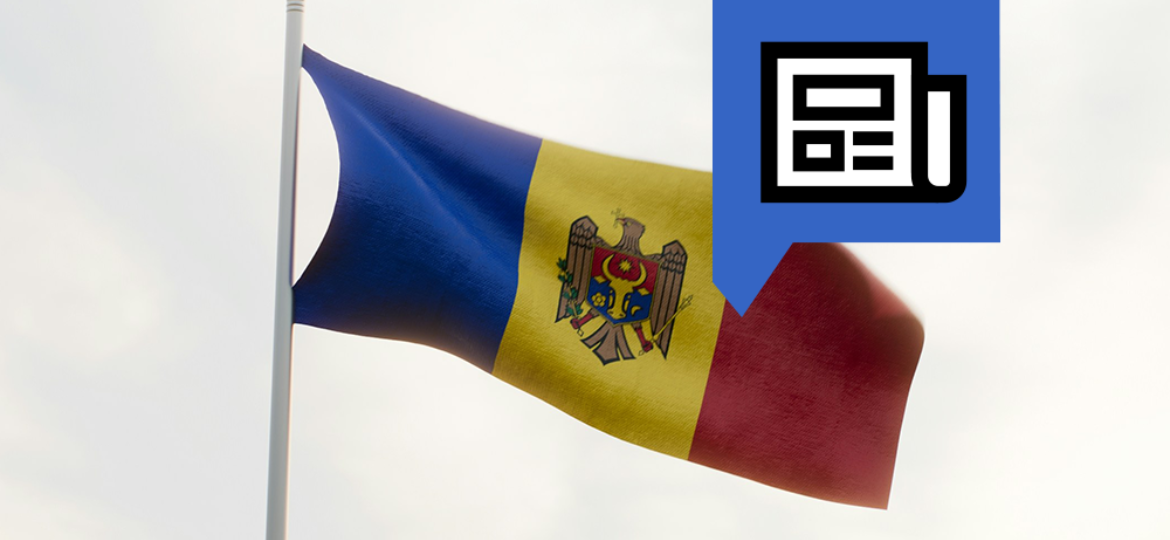Election day is here! The presidential elections and the referendum can both be considered valid thanks to voter turnout at 15:00. For trustworthy and updated numbers, you can check the website of the Central Electoral Commission.
Polling starts at 07:00 and closes at 21:00 in the 2,221 polling stations. While there are over 300 voting stations in Chisinau, 30 stations are for the Transnistrian region, and 234 voting stations are organized in the diaspora. For the first time, in some countries it was possible to vote by mail. There will be no exit polls, as no entity has sought accreditation in this regard, but the results will be available in real-time as the votes are counted. At the same time, 2,061 national and international observers will monitor the conduct of the elections. Observers accredited by the Central Electoral Commission (CEC) represent associations from the country as well as foreign diplomatic missions or international electoral authorities, including the OSCE, the European Parliament and the Council of Europe.
One of the questions that has made rounds especially in the last couple of days is linked to the sharp decrease in the number of polling stations opened by Moldovan authorities in the Russian Federation: only two, in Moscow. People queued here, danced and sang in the streets and had to go through metal detectors to be able to vote. The reason would be the inability of the Moldovan Embassy to meet all the security requirements submitted by the Intelligence and Security Service (SIS) in other Russian cities. These unspecified security requirements could only be ensured in the premises of the Embassy in Moscow, where the two polling stations were organized and the maximum number of ballot papers were distributed, namely 5000 per station. This situation led many opposition politicians, including Igor Dodon, to frame it as discriminatory. During the last elections, 17 polling stations were available in Russia. Dodon remained true to his word with the statements made at the polling station: the former president did not vote for the “illegal referendum”.
The General Police Inspectorate (IGP) reported 75 cases of violations at various polling stations across the country, at 15:30. These incidents included organized transportation of voters, suspected voter bribery, obstruction of voting rights, and damage to ballots. Despite these issues, the IGP emphasized that no major violations were recorded, and the overall electoral process was conducted smoothly. The police ensured public order and collaborated with the Central Electoral Commission to address and document the reported incidents.
Complementary, Promo-LEX observers reported numerous violations of voting secrecy. They documented a total of 658 incidents, with the majority involving breaches of voting confidentiality. Other reported issues included unauthorized presence at polling stations, improper sealing of ballot boxes, organized voter transportation, voters being offered incentives and materials promoting certain candidates near polling stations.
The NGO uncovered alarming instances of vote-buying during the recent elections in Moldova, with some voters reportedly being offered up to 3,000 lei (about 150 EUR) for their votes. The organization documented numerous cases of electoral fraud, including the distribution of money and goods to influence voters.
The authorities are looking into groups of Moldovan citizens from Sochi and Krasnodar were transported to polling stations to cast their votes. Authorities are investigating these incidents.
One of the most visible incidents occurred in London, where Veaceslav Platon, a fugitive convict, faced public backlash at a polling station in London. Platon tried to provoke other voters, but was unsuccessful. The situation escalated and police intervention was necessary to maintain order. Platon, who has multiple criminal cases against him, was met with jeers and protests from voters, highlighting the contentious nature of his presence and the strong reactions he provokes. He is (in)famous for his Star of David provocations in Paris after the Hamas attack on Israel.
Anonymous pages are promoting a poll on a Russian website related to the referendum on European integration, aiming to gauge Moldovans’ views on Eurasia, an organization led by Putin’s Russia. These pages have previously advertised to Moldovans about their election and referendum preferences. Additionally, these pages sponsor the NGO Eurasia, created in Moscow by Ilan Shor and the Russian secret services, which is under EU and US sanctions. At the time of writing, Meta blocked said pages.
Other pages are running ads supporting Ilan Şor and his criminal group. Other similar pages, using national symbols of Moldova and having zero followers, are also suspected of promoting advertisements. Additionally, a page linked to “MD24” TV, a Moscow-based channel by fugitive oligarch Ilan Şor, broadcasts Russian-language news criticizing President Maia Sandu and European integration.
This newsletter is part of our ongoing work with the Bulgarian-Romanian Observatory of Digital Media, member of EDMO.
